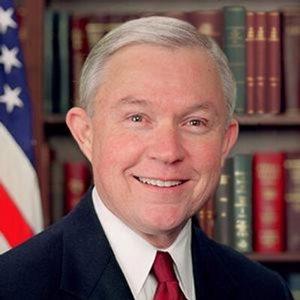And now, they -- or, more precisely -- the taxpayers, will pay up.
The Rohrabacher-Blumenauer amendment stays alive (for now) in the stopgap spending bill, Honolulu's police chief backs away from seizing patients' guns, and more.
California's big cities clear the way for legal weed sales, California's small marijuana farmers worry about big grower competition, Delaware cops want pot people's guns, and more.
The attorney general hunkers down with marijuana foes, the federal ban on going after medical marijuana where its legal gets a reprieve, Hawaii cops back away from their plan to seize patients' guns, and more.
California is getting ready for the legal marijuana industry, some Ohio operators want another crack at a legalization initiative, Canadian Tories are threatening to retard the passage of the legalization bills there, and more.
The folks behind Ohio's 2015 "monopoly" marijuana legalization are back with details of their proposed "free market" 2018 initiative, Denver gets its first marijuana social club application, the Justice Department ends its deferred prosecution agreement with HSBC bank over drug cartel money laundering, and more.
The Hartford, CT, city council says legalize it, a Wisconsin Democratic gubernatorial canddate attacks Scott Walker over food stamp drug testing, Colombia meets coca eradication goals, and more.
In June, 2014, Wilfredo Ramos was driving back to his Brooklyn home after visiting his mother in Lancaster, Pennsylvania when two Pennsylvania State Police troopers detoured him into a Kafkaesque nightmare from which he emerged only five months later.

The traffic stop from hell happened to Wilfredo Ramos -- and happened, and happened. (Sonoma County Sheriff's Office)
In the meantime, Ramos rotted in jail on bogus charges, losing his job, his car, and his apartment. Now, in a small gesture of redress, the State Police have agreed to pay Ramos $150,000 for his travails in a taxpayer-funded settlement, but the cops still admit no fault or liability.
According to the lawsuit that ended in the settlement, Ramos' nightmare began when he was pulled over by Troopers Justin Summa and Kevin Vanfleet on June 6, 2014. Neither trooper said why they stopped Ramos, and the suit alleged they were engaged in racial profiling because Ramos is Hispanic and was driving a car with New York plates.
Summa claimed he smelled alcohol, and Ramos replied that he had not been drinking. Summa then challenged Ramos, citing his ethnicity and place of residence. "We know you have drugs," Summa told him, "just tell us where they are." Ramos denied possessing any drugs.
Summa then administered a Breathalyzer test, which came back negative for alcohol, and ordered Ramos to perform field sobriety tests, which he completed without any problem. The encounter should have ended at that point, with Ramos being thanked for his cooperation and sent on his way, since there was no evidence he had committed any crime.
But that's not what happened. Instead, although Ramos had cleared all the tests and although they lacked probable cause, Troopers Summa and Vanfleet arrested Ramos for driving under the influence, giving them a pretext to search his vehicle in their quest to make a drug bust. Their search turned up nothing.
The troopers then took Ramos to state police headquarters where they administered yet another Breathalyzer test, which they described as "inconclusive." The next stop was the Lehigh County DUI center, where Ramos consented to have his blood drawn to be tested.
According to the lawsuit, typical practice in Lehigh County is that people arrested under suspicion of drunk driving who have no prior drunk driving arrests and where there was no accident or injuries are released pending blood test results. That didn't happen with Ramos. Instead, he was held under $10,000 cash bail -- an amount he could not raise.
As Ramos rotted in jail, his blood sample was tested twice by the Lehigh Valley Health Network Laboratory, which found on June 18, 2014, that it contained no drugs or alcohol. Trooper Summa then ordered a third test of the sample, this time for a broader spectrum of substances, but again the results were negative.
On the same day the test results came in, Summa testified in a preliminary hearing on Ramos' case that the results were not yet in. He did not tell the court about the negative test results. Ramos remained in jail for 158 days until he was found not guilty in Lehigh County Court after blood tests showed no illegal substances or alcohol in his system.
While Ramos was jailed, he was fired from his job and lost his home. He lost his car, too: The tow truck operator notified Ramos by mail about a deadline to retrieve his vehicle, but because Ramos was in jail, no one was at his residence to receive the letter.
Ramos' lawsuit charged that Troopers Summa and Vanfleet conspired to falsely arrest him despite finding no evidence that he was impaired or had drugs in his car. The lawsuit also named five state police supervisors, from the troop commander to former state police Commissioner Francis Noonan, as liable for racially motivated misconduct, unlawful seizure, violations of due process of law, denial of equal rights, conspiracy to interfere with civil rights, and other Civil Rights Act violations.
While the State Police admitted no fault or liability, their willingness to settle the case speaks for itself.
Attorney Joshua Karoly, who represented Ramos in the lawsuit, was magnanimous after the settlement was announced. "It was a mistake that this happened, and this resolution is going to go a long way toward getting his life back on track to where it was before this happened," Karoly told the Lancaster Morning Call. "It makes mistakes like that much less likely when they're brought to the public's attention."
back to top
The Rohrabacher-Blumenauer amendment stays alive (for now) in the stopgap spending bill, Honolulu's police chief backs away from seizing patients' guns, and more.
NationalLast Thursday, federal medical marijuana protections got a two-week reprieve. The passage of a stopgap spending bill means the Rohrabacher-Blumenauer amendment ban on spending federal funds to go after medical marijuana in states where it is legal remains in force for at least another two weeks. That's good as far as it goes, but it doesn't go nearly far enough, said Rep. Earl Blumenauer (D-OR) in a statement: "While we are pleased that these critical protections will continue, two weeks is not enough certainty for the millions of Americans who rely on medical marijuana for treatment and the businesses who serve them," Blumenauer said. "As Congress works out a long-term funding bill, it must also include these protections. And ultimately, Congress must act to put an end to the cycle of uncertainty and permanently protect state medical marijuana programs -- and adult use -- from federal interference."
Hawaii
Last Wednesday,the Honolulu police chief admitted the department erred in trying to take guns from patients. Chief Susan Ballard acknowledged to the Honolulu Police Commission that the department's abortive move to make medical marijuana patients turn in their firearms "was incorrect." She said the department will return two guns to people who turned them in voluntarily, but she also said the department will continue to deny new gun permits to cardholders.
Nevada
Last Thursday, the state's highest court okayed the state's medical marijuana registry. The state Supreme Court ruled unanimously that the state's medical marijuana registry does not violate constitutional provisions of due process, equal protection, and the right against self-incrimination. "We conclude Nevada's medical marijuana registry does not impinge upon a fundamental right," said the opinion written by Justice Ron Parraguirre. "We further conclude the registry is rationally related to the legitimate state interest of protecting the health, safety and welfare of the public."
[For extensive information about the medical marijuana debate, presented in a neutral format, visit MedicalMarijuana.ProCon.org.]
back to top
California's big cities clear the way for legal weed sales, California's small marijuana farmers worry about big grower competition, Delaware cops want pot people's guns, and more.
Marijuana PolicyCalifornia NORML Recommends Priority Licensing for Small-Scale & Outdoors Cultivators. The marijuana activist group is calling on state regulators to create a licensing priority scheme that would favor small outdoor grows of up to an acre over both indoor mixed lighting and indoor high-intensity lighting operations and leave large-scale operations out of consideration. The group fears that emergency licensing regulations as written could "open the door to large-scale, industrial mega-grows that could monopolize California's limited available acreage, exacerbate environmental harm, and stifle participation by smaller growers."
Los Angeles City Council Approves Legal Marijuana Rules, Sales Set for January 1. The city council agreed Wednesday to a package of regulations for legal marijuana commerce, clearing the way for legal sales to begin on January 1. The approved rules include a "social equity" program aimed at prioritizing communities that have historically been affected by the war on drugs. Under that program, cannabusiness operators that meet "social equity" criteria would be moved to the head of the line for license applications.
San Francisco Mayor Approves Legal Marijuana Rules, Sales Set for January 6. Mayor Ed Lee Wednesday signed into law legislation setting rules for legal marijuana commerce in the city. But because the city has been slow in reaching agreement on the pot rules, it won't quite be ready on January 1. Instead, city officials are looking at January 6 as the legal sales date.
Delaware Police Look at Gun Ban for Marijuana Users. Law enforcement officials Wednesday told a task force studying legalization that marijuana users should be forced to have an endorsement on their drivers' licenses indicating they use marijuana to help ensure that they cannot own guns. "It would make sure that we are doing everything we can to ensure that prohibited people are not buying firearms in Delaware," he explained after the meeting.
Indiana Prosecutors Formally Oppose Marijuana Legalization. The Association of Indiana Prosecuting Attorneys, Inc. formally opposed the legalization of marijuana in any form for any reason at a news conference in Indianapolis Wednesday. Also on hand were the Boone County Sheriff's Department, the Indiana Chamber of Commerce, and the anti-legalization group Smart Approaches to Marijuana (SAM).
Heroin and Prescription Opioids
Senator Manchin Calls on FDA to Adopt Changes in Opioid Fight. Sen. Joe Manchin (D-WV) has sent a letter to Food and Drug Administration Commissioner Dr. Scott Gottlieb calling for three major changes in opioid policy. Manchin wants mandatory and continuing education for healthcare providers, a review of every opioid on the market, and for the FDA to remove one opioid from the market for each new one it approves.
International
Dutch Justice Officials Accused of Interfering With Marijuana Research to Advance Their Political Agenda. Senior justice ministry officials are accused of interfering with research on marijuana tourism. According to a whistleblower, researchers concluded that a policy of repression and banning sales to foreigners was not needed because there was very little actual nuisance from drug tourism in many places. But ministry officials didn't like those conclusions, so they deleted research questions and removed an entire chapter with conclusions and recommendations on a better policy. This took place under then Justice Minister Ivo Opstelten. Current Justice Minister Ferdinand Grapperhaus said Thursday he had commissioned an external inquiry in the matter.
back to top
The attorney general hunkers down with marijuana foes, the federal ban on going after medical marijuana where it's legal gets a reprieve, Hawaii cops back away from their plan to seize patients' guns, and more.

Trying to fight multiple drug wars is keeping Jeff Sessions a busy man these days. (senate.gov)
Sessions Meets With Anti-Marijuana Activists. US Attorney General Jeff Sessions met Friday with marijuana legalization foes to discuss marijuana and drug policy. Sessions declared that "this is not a healthy substance" and that "the public is not properly educated on some of the issues related to marijuana. At the meeting were Project SAM head Kevin Sabet, former drug czar's office staffer Dr. Bertha Madras, Drug Free Schools Coalition head David Evans, former NIDA head Robert DuPont, and, just for old times' sake, Reagan era Attorney General Ed Meese.
Massachusetts Lawmakers Consider Cannabis Clubs. A Cannabis Advisory Board subcommittee is calling for the creation of businesses that would allow the purchase and smoking of marijuana. The move would help out of state tourists, as well as residents who don't want to smoke pot at home, supporters said.
Medical Marijuana
Federal Medical Marijuana Protection Gets Two-Week Reprieve. The passage of a stop-gap spending bill Thursday means the Rohrabacher-Blumenauer amendment ban on spending federal funds to go after medical marijuana in states where it is legal remains in force for at least another two weeks. That's good as far as it goes, but it doesn't go nearly far enough, said Rep. Earl Blumenauer (D-OR) in a statement: "While we are pleased that these critical protections will continue, two weeks is not enough certainty for the millions of Americans who rely on medical marijuana for treatment and the businesses who serve them," Blumenauer said. "As Congress works out a long-term funding bill, it must also include these protections. And ultimately, Congress must act to put an end to the cycle of uncertainty and permanently protect state medical marijuana programs -- and adult use -- from federal interference."
Honolulu Police Chief Admits Department Erred in Trying to Take Guns from Patients. Chief Susan Ballard acknowledged to the Honolulu Police Commission Wednesday that the department's abortive move to make medical marijuana patients turn in their firearms "was incorrect." She said the department will return two guns to people who turned them in voluntarily, but she also said the department will continue to deny new gun permits to cardholders.
Nevada High Court OKs State's Medical-Marijuana Registry. The state Supreme Court ruled unanimously on Thursday that the state's medical marijuana registry does not violate constitutional provisions of due process, equal protection, and the right against self-incrimination. "We conclude Nevada's medical marijuana registry does not impinge upon a fundamental right," said the opinion written by Justice Ron Parraguirre. "We further conclude the registry is rationally related to the legitimate state interest of protecting the health, safety and welfare of the public."
Foreign Policy
US, Colombia Vow to Battle Record Surge in Coca Production. At a meeting in Cartagena, Colombia, on Thursday, Attorney General Jeff Sessions and his Colombian counterpart, chief prosecutor Nestor Martinez, vowed to redouble efforts to suppress coca planting and the cocaine trade. "We're gonna make progress," Sessions vowed. Colombia is seeing coca cultivation grow dramatically in the wake of a peace treaty between the government and leftist rebels of the FARC.
back to top
California is getting ready for the legal pot industry, some Ohio operators want another crack at a legalization initiative, Canadian Tories are threatening to retard the passage of the marijuana legalization bills there, and more.

Will Canada actually get marijuana legalized by July 1? Maybe. (Creative Commons)
California Secretary of State Launches Online Portal for Cannabusinesses. Secretary of State Alex Padilla has launched on online portal aimed at helping would-be ganjapreneurs get in on the state's emerging $7 billion legal marijuana industry. Padilla's office won't start accepting registrations until January 1, but the portal, cannabizfile.sos.ca.gov, is up and online now.
Ohio Backers of Failed 2015 Legalization Initiative Will Try Again in 2018. One of the cofounders of ResponsibleOhio, whose 2015 legalization initiative fell short at the polls, is set to propose on Monday a "free market" marijuana legalization initiative. Jim Gould and Ian James, the two cofounders of ResponsibleOhio, unsuccessfully applied for one of the state's two dozen medical marijuana cultivation licenses. Their 2015 initiative would have limited commercial cultivation to 10 preselected sites owned by the campaign's funders.
Drug Policy
Florida Democrats Call for Reviving State Drug Czar Office. Several Democratic state legislators have filed legislation, House Bill 865, which would bring back the shuttered state Office of Drug Control. A similar measure has been filed in the state Senate. The lawmakers said the office is needed to coordinate state-level responses to the opioid crisis.
International
Canada Tories Could Throw Wrench in Marijuana Legalization Timeline. Conservative senators are threatening to hold up passage of the pair of bills that would legalize marijuana in the country. The Tories are saying that it could take months for them "to do our job properly." A delay in the much anticipated July 1 deadline for legalization could sow confusion among provincial governments, which are negotiating contracts with suppliers, as well as marijuana businesses that are ramping up production and signing leases for storefronts and warehouses.
Georgia Drug Reformers Hold Big Protests Against "Repressive" Drug Policies. The White Noise Movement, an NGO calling for drug reforms in the former Soviet republic, held massive protests in the county's three largest cities -- Tbilisi, Kutaisi, and Batumi -- on Sunday. The Sunday rallies marked the UN's global Human Rights Day and protestors rallied under the banner "End the Repressive Drug Policy." Demonstrators called on parliament to adopt a draft law that would end imprisonment for personal drug possession and consumption.
back to top
The folks behind Ohio's 2015 "monopoly" marijuana legalization are back with details on their proposed "free market" 2018 initiative, Denver gets its first marijuana social club application, the Justice Department ends its deferred prosecution agreement with HSBC bank over drug cartel money laundering, and more.
Marijuana PolicyFirst Look at Proposed Ohio Legalization Initiative. The two men behind Ohio's failed 2015 marijuana legalization "monopoly" initiative held a press conference Monday outlining their proposed 2018 initiative. Unlike the 2015 initiative, next year's version would be a "free market" approach, there would be a local option to ban pot businesses, public smoking of marijuana would not be allowed, businesses would have to stay 500 from schools and churches, and individuals would have the right to grow their own (although landlords could forbid tenants from doing so). Organizers said they plan to submit their initiative to state officials next month.
Denver Gets First Marijuana Social Club Application. A business that wants to allow on-site vaping and consumption of marijuana edibles has become the first to apply for a marijuana social club license. Denver residents voted to allow such businesses when they approved Initiative 300 last year. The Coffee Joint next faces a public hearing, but has already won the backing of its local neighborhood association.
Law Enforcement
Justice Department Closes File on HSBC Drug Money Laundering. The Department of Justice will end its deferred prosecution agreement with HSBC, Europe's largest bank, after five years, marking the end of its punishment of the bank for laundering hundreds of millions of dollars in Mexican drug cartel funds. DOJ hit HSBC with a $1.9 billion fine and imposed the five-year deal in 2012, demanding that HSBC strengthen its sanctions and anti-money laundering programs, which it has now apparently done. No one has faced criminal charges in the case.
International
Canada Federal Government, Provinces Reach Agreement on Marijuana Taxes. Canada's federal government and the provinces have agreed in principle on a two-year tax sharing agreement that would give provinces 75% of the eventual revenues. The federal Liberals have proposed a 10% excise tax on marijuana products and had originally proposed splitting the money 50-50, but have now retreated in the face of loudly-voiced provincial concerns that they would bear most of the burden of legalization-related costs.
back to top
The Hartford, CT, city council says legalize it, a Wisconsin Democratic gubernatorial canddate attacks Scott Walker over food stamp drug testing, Colombia meets coca eradication goals, and more.

Gov. Walker wants Wisconsin to be the first state in the country to drug test food stamp recipients. (Creative Commons)
Hartford, CT, City Council Calls for Legalizing and Taxing Marijuana. The city council voted unanimously Monday night to approve a resolution calling for the legalization and taxation of marijuana. The resolution also calls on the city to conduct an economic impact study and hold public hearings on the issue, as well as measures to "ensure racial equity in ownership and employment."
Drug Testing
Wisconsin Democratic Governor Candidate Rakes Walker on Food Stamp Drug Testing. Democratic gubernatorial contender Matt Flynn slammed Gov. Scott Walker's (R) plan to impose drug screening and testing on food stamp recipients Tuesday: "I condemn this in the strongest terms. First, it is hypocritical. Walker and his Republican allies claim to be against intrusive big government, but there has never been a more intrusive, big-government administration in our state's history," he said. "Second, this is foolishly wasteful of our state's limited resources. By the administration's own admission, fewer than one-third of one percent of all food stamp recipients will likely be identified as drug users. Numerous states have passed similar 'reforms' and have actually found that recipients of these programs test positive at a lower rate than the general population. These 'reforms' always cost more money than they save. Third, and most importantly, this policy is offensive in the extreme. It demeans people experiencing poverty. It is unconscionable."
Law Enforcement
Kansas Couple Whose Home Was Raided in Bungled Marijuana Search Loses Lawsuit. The couple, a pair of former CIA employees who were growing tomato plants hydroponically, were raided by Johnson County sheriff's deputies searching for marijuana. Deputies zeroed in on the couple after spotting them at a hydroponics store, then searched their trash and mistook discarded tea leaves for marijuana leaves. The couple sued, alleging deputies violated their Fourth Amendment rights, but a federal jury disagreed. The couple says they will appeal.
International
Colombia Says It Met Coca Eradication Deadline, Hints at Shift to Crop Substitution. Colombian Defense Minister Luis Carlos Villegas said the country had eradicated some 125,000 of coca planting ahead of a deadline agreed to with the US. He said the target for forced eradication next year would decline to 100,000 acres. This year's forced eradication program was five times larger than last years' and led to clashes between troops, eradicators, and growers that left at least ten coca farmers dead.
(This article was prepared by StoptheDrugWar.org's lobbying arm, the Drug Reform Coordination Network, which also pays the cost of maintaining this web site. DRCNet Foundation takes no positions on candidates for public office, in compliance with section 501(c)(3) of the Internal Revenue Code, and does not pay for reporting that could be interpreted or misinterpreted as doing so.)
back to top






